
UHCL’s Faces of Immigration
President Donald Trump signed an executive order on Jan. 27 temporarily suspending entry of people from seven countries (Iran, Iraq, Lybia, Somalia, Sudan, Syia and Yemen) into the United States. Universities across the nation have issued formal statements to their student body in response to Trump’s travel ban as well as other action items pertaining to immigration. The University of Houston-Clear Lake President William Staples sent out an e-mail assuring students that this diverse university stands with students, faculty and staff from all countries, races and backgrounds.
Here are a few personal immigration stories and experiences from UHCL faculty, staff and students.
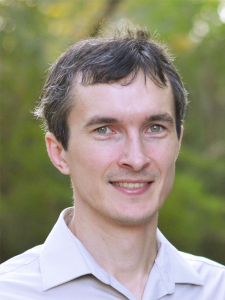
Anton V. Dubrovskiy
Assistant Professor of Chemistry
“During the first two-thirds of my life, I had barely met anyone who wasn’t Russian. I never had to speak a different language beyond in a classroom setting or understand history and culture of any other country rather than my own. While still in college, my future wife and I found an opportunity to work three summer months in the chemistry lab outside of our country as exchange scholars. Driven by curiosity, we accepted the offer and landed in a small college town of Ames, Iowa. What a fascinating time it was! Every day brought a new discovery: we’d learn that ‘How is it going?’ doesn’t always need an answer, or that everything (except for porridge) can be bought in gigantic supermarkets. An immense language barrier made it hard for us to communicate but, fortunately, the friendliness of American people and the universal language of chemical structures made our stay rather smooth.
Driven by incredible opportunities to do research, we then committed to graduate school of Iowa State University. Being surrounded by scholars from all over the world had a positive impact on the science done (we were all educated differently) and our world perspective (we all learned from each other’s life stories). After the required TA experience, I unexpectedly realized that I love teaching. Having gone to Caltech for almost two years of postdoctoral work, I joined UHCL in the Fall of 2014.
I think that foreign upbringing of me and many other faculty members helps to reach UHCL students in fresh ways. From the way I talk and phrase questions to how I explain subtle chemistry nuances, my hope is that students will find it helpful and insightful.
This country provided me with an incredible opportunity – to get education and to touch lives of others through it. I will always be grateful for American hospitality”
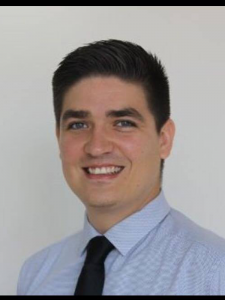
Alfredo Gomez
UHCL alumnus
Recruiter II, Talent Acquisition Diversity & Outreach at Lone Star College
“When I first moved to this country with my family at the age of 14, education was the last thing on my mind. At first, I was more concerned with our family’s struggles, such as where we were going to live and how long my father’s job going to last. High school seemed to be waste of time because I was not being challenged or encouraged to learn and succeed. I quickly learned that society here is different and people seem to classify others based on different classifications, such as race, education level, income. At that time, I was just another teenager from ‘Mexico.’
I was fortunate enough to have a few good educators and mentors that crossed my path in high school and my first places of employment. They taught me how to challenge myself and improve my current situation with both work ethic and education. Since I did not think education was important and did not take advantage of educational resources in high school, I did not believe I could be successful in college.
My mother pushed me to go to college and helped me get enrolled into a community college (San Jacinto College). After two difficult semesters, I dropped out and decided that education was not for me. A few years went by and I had the opportunity to see my mother walk across the stage at NRG Stadium (Reliant at the time) and receive her bachelor’s degree in education. After six years, she was able to make it. When I saw her walk, I thought to myself, I have no excuse and decided to go back to school.
Little by little I enrolled back in college. At first, it was even more difficult than the first time. I had to pay back the financial aid money that I was given the first time, and I did not qualify for any grants anymore because of my academic standing. I had to pay out of my own pocket, which I believe made me take school more seriously. Semester by semester, course by course, I started to gain confidence, until I obtained my first A. College started to become possible for me and I started to think bigger. After a few years, I graduated from San Jac and transferred to UHCL. I was advised to transfer here because it resembled a lot of the same characteristics as San Jac did. Small classrooms, access to professors and affordability. Best decision in my life!
Today, I hold a master’s degree in psychology from the same UHCL. I am the same person I was back when I did not think college was possible for me. Education not only has opened a number of opportunities for me but has also taught me the value of sacrifice, perseverance and dedication. Hard work does pay off. I am currently working in Higher Education, which is my field of choice. I want to be able to inspire others like me and help them accomplish their educational goals. In less than a year, I anticipate that I will be teaching at a community college.
Education is not easy, but it is simple. Everyone knows the equation to be successful. Go to class, listen, take notes and study. If you do those simple things you will succeed. Unfortunately, not everyone is willing to do the hard work.
In today’s society, there are many misconceptions about people. And our society tends to classify individuals based on race, education level, income. Education has also allowed me to break some of the barriers that are placed on me because of who I am and where I can from. I am able to demonstrate that I am as capable as any other individual.
If there is one thing I can share with you, it is for you to fall in love with the process. The process is going to be difficult and full of challenges and disappointments. Keep striving and remember that this is about you. You define you! No one else! Persevere and succeed.”

Leo Chan
Associate Professor and Program Director of Communication and Digital Media Studies
“I am the youngest of eight children in my family; I was born and raised in Hong Kong. I come from a humble family background that we all lived in a less than 400-square-foot government housing for a long time. Both of my parents were not educated, and none of my siblings were able to finish high school because of the financial hardship.
I was taught the value of hard work and not to take anything for granted at a very young age. I was very fortunate that I completed my high school education. With the support of my family, I continued to pursue my studies. Fast forward years later, I moved to the United States to further my education. As excited as I was about my new adventure in the U.S., I was also extremely nervous about the cultural and language barriers that I would encounter. Without my family and friends around, I was determined to find my own way and establish my new life here. Though there have been countless ups and downs along the way, I am happy to say that this country has given me opportunities to get where I am, the opportunities that none of my family members were able to get, and I am forever grateful. Additionally, I have been very fortunate to have met many wonderful people since I moved to the U.S. All these people from different ethnic and cultural backgrounds have enriched my life tremendously. In 2015, my American dream came true; I became a proud American citizen. As an immigrant myself, I am sure there are millions of people who have a similar dream as mine and want to call this country home as well. I strongly believe that we can never have enough kindness, compassion, and acceptance.
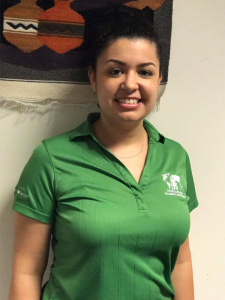
Erika Garcia
Coordinator for Intercultural Student Programming of the Office Student Diversity, Equity and Inclusion
“I am the granddaughter of immigrants, and as the eldest granddaughter, I have watched them instill a certain level of immigrant grit, which is usually characterized by a strong motivation in both personal and professional success, confidence and dedication. I commonly notice that among immigrants from every country in the U.S. There is an acknowledgment of the selfless sacrifices that have to be made for the comfort of others, usually children and family. I think as folks move forward through generations and lose touch with that immigrant sacrifice even within their own family, they also lose the ability to sympathize with the immigrant sacrifice.”
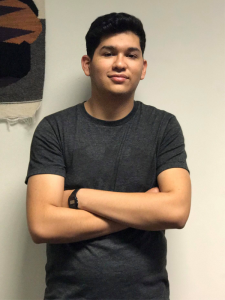
Ivan Almendariz
Environmental Science major
“When I was five years old my dad was deported back to Mexico. Growing up, my mom was the one who really raised us. She would take us to Mexico once a month so that we would still have a relationship with our father. I was too young to understand what was going on then. All I knew was that we would get in the car for a long time and when it ended we would be with my dad. It wasn’t until I was about 11 or 12 that my mom told me what was going on. She said that my dad couldn’t come home with us after the weekend would end. I’m not sure what my dad did to get deported, but I’m sure it was not that bad that he would lose his family. When my mom told me about the day the officers came to take my dad away, I thought to myself for a while. I could remember a dream I had where two officers came to our doorstep and took my dad from us. After I told my mom about the dream, she told me that it wasn’t a dream; but that it happened. My ‘dream’ was just a memory that I remembered vividly from when I was five. Until this day I think that a lot of the immigration laws tear families apart and only do more harm than good.”
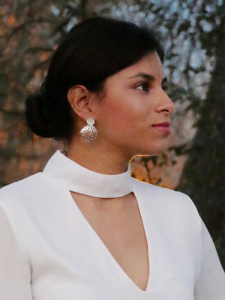
Ashley Sierra
Education major
“The journey for the American dream. . . Everyone talked about the American dream, some wished on it others pursued it. A young man in his early 20s set out to pursue the American dream with his uncle. He left his home and headed to the border where he would cross illegally. Not once or twice did he get returned back by the US immigration but many more, back to his starting point. After so many days, he was left with no money, and the hunger grew and grew; the only thing left was to beg for food. He ate avocados and tortillas with salt. He said he’s never tasted anything as good, ‘con hambre hasta comes piedras/ with that hunger you could eat rocks’. He suffered hunger and cold nights but it was worth it all, he was able to cross over to conquer his American dream. Years later he was able to fix all his paperwork for him to receive his social and become a resident. Due to his determination, he was able to provide for his two daughters a higher education and a middle class living in the United states. Thanks to his determination both his daughters will graduate this year with a bachelor’s degree in bilingual education.”

Janette De Leon
Accounting major
“My parents and I immigrated to the US from Monterrey, Mexico about 16 years ago. Our life, like any immigrant, has its ups and downs. My father has worked really hard to put a roof on top of us. I remember my father starting from having three jobs (mowing yards, dishwasher and carpenter) to where we now have our own business. I’ve been very blessed by having hard-working parents that supports my brothers and I on our education. Now I’m on my junior year of college with no student debts no financial aid, thanks to all their had work and support.”
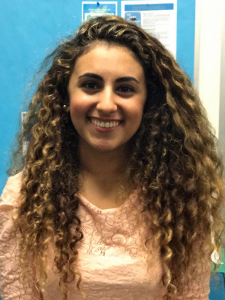
Sandy Samaan
President of the Political Science Student Organization (PSSO)
“My family is Egyptian-American and I have so much pride in having both of these cultures. Raised in New Jersey and moving to Texas was a huge transition for our family and I can only imagine what it was like when my family moved from Kuwait to New Jersey. Although I’ve lived here for the majority of my life so far, I still hold my Coptic Egyptian heritage very close. Leaving one country for another is never necessarily easy but I’m so thankful to be an American, just as much as I’m thankful to be Egyptian. Not many people have the opportunity to hold two beautiful cultures, and I’m blessed that I do!”
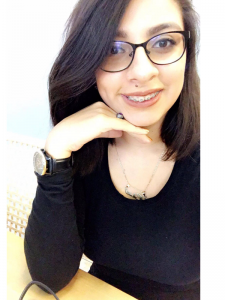
Elizabeth Hernandez
Math major
“My parents were born in Mexico and they immigrated to the United States many years before I was even in their plans. They have worked so hard throughout their lives just to make ends meet most of the time. I can’t say that they pushed me to work hard for my education, but for all of their hard work I wanted to prove to them that all of the hard work wasn’t going to go to waste. So, therefore, that was my motivation to keep working in school and go beyond just getting a high school diploma. I remember growing up my family wasn’t very active in my academics or my extracurricular because there was five kids that they needed to raise, and there was five kids that they needed to feed so they were always at work but that never stopped them from showing how proud they were. They came to the United States because they had children to look after they had children who they wanted to provide so many new opportunities for, so many opportunities that they wouldn’t get back home. So they picked up and they left their loved ones and as hard as it was they knew that it was the best thing for their family and their future. To think about how hard they have worked is just unbelievable. They have broken their backs just to make sure there was food on the table for all their kids and I know that it was not easy for them to leave their own parents, their family behind, so with that being said I know that I need to prove to them that it was worth it, that the sacrifices that they made weren’t just going to go to waste. I am thankful because I know that if they had stayed in Mexico I probably wouldn’t have been able to afford to even graduate high school I wouldn’t have been able to have dreams or continue on with school I know for a fact that school wouldn’t have been a possibility because of money. Because where they come from is just a little itty-bitty town that as much as I love going to visit it’s just, it’s hard to leave that place being successful. Sadly, my dad passed away and he was never able to go back home to Mexico. But, he knew that he had to do it for his family so now, more than ever, I know that I’m going to continue to work hard in school and I’m going to continue to make them proud for everything that they did for our family.”
Linda Early
Accounting graduate student
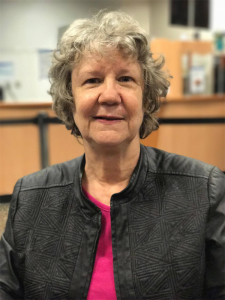
“My grandmother and oldest aunt were born in Barbados, this was kept as a family secret and I didn’t find out until I was 21. Another aunt used to put down the oldest one and say she was better because she was born in the United States. I remember there was certain food that we were not allowed to talk about in public, of course my brother and I used to mention it just to make my mother angry. I’m really sad that I did not get to benefit and acknowledge my heritage. I would’ve liked very much to visit. I feel very fortunate to live in the U.S. I lived in Mexico for five years. I liked the food, the music, the ambiance, the way people show their affection for each other and the climate.”
